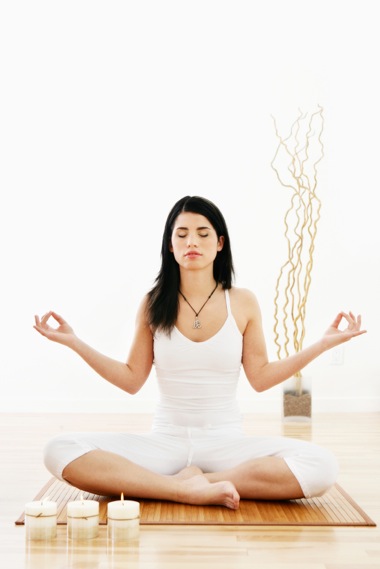Physical Therapy Info Health Tips
Our Integrated Physical Therapy blog, your go-to source for physical therapy articles and holistic health information. We provide expert insights, practical physical therapy tips, and the latest developments in the field. Whether you're recovering from an injury, managing chronic pain, or looking to improve your overall well-being, our physical therapy blog covers a variety of helpful topics.
Our goal is to empower you with the information you need to take an active role in your health and recovery. Ready to schedule an appointment and take control of your health? Contact Integrated Physical Therapy at 305-967-8976.
Can You Find the Calm

Meditation isn't for you. You don't have the time or the inclination. Plus, you're just not the type who can "clear her head" -- whatever that means. You're hardly the only one who feels that way: The National Center for Complementary and Alternative Medicine reports that a mere 7.6 percent of Americans use meditation to improve their health. But judging by the success of books like Eat, Pray, Love and Stumbling on Happiness, we are all in great need of stress relief, even if they do think meditation is, well, a little weird.
Could meditation help you, too? Is it possible to do it without getting all Zen-like?
How Does It Work?
In short: Meditation helps people reduce stress. Stress stimulates our fight-or-flight response, which raises blood pressure, narrows blood vessels, tightens muscles, increases heart and breath rate, and floods our bodies with stress hormones.
Chronic stress has been linked to the six leading causes of death: heart disease, cancer, lung ailments, cirrhosis of the liver, suicide, and accidents. And two-thirds of all office visits to family physicians are due to stress-related symptoms.
Meditation stimulates the part of the nervous system that lowers heart and breath rate and blood pressure, relaxes muscles, and can reduce stress hormones to a normal range
How Long Do I Have to Do It?
You don't have be a yogi in the Himalayas meditating for 45-minute stretches to get results. It takes just 10 to 20 minutes to relax your muscles, become aware of your breathing, and reduce your heart rate.
Transcendental Meditation is a style of meditation that involves simply sitting quietly with your eyes closed for up to 20 minutes. While seated, meditators repeat a mantra to allow the mind and body to settle down and find deep rest. People who practiced Transcendental Meditation actually lived longer, according to a study in the American Journal of Cardiology.
Will It Really Help My Health?
Daily meditation offers drastic relief from debilitating or chronic pain and stress. We often hear "My muscles are much more relaxed, and I'm on less medication now,". In essence your brain learns to handle pain differently. With the help of MRIs, researchers at the University of California at Irvine discovered that people who meditated twice a day for five months showed 40 to 50 percent less activity in the area of the brain that senses pain as compared with non-meditators.
Earlier this year, researchers from the University of Pennsylvania School of Medicine found that 15 to 20 minutes of Transcendental Meditation (TM) practiced twice daily can significantly reduce the severity of congestive heart failure and increase survival rates. In addition, a randomized, placebo-controlled study -- the gold standard of research -- published last year in the Archives of Internal Medicine showed that four months of TM significantly decreases risk factors for heart disease, such as high blood pressure and insulin resistance. "Meditators have lower death and heart attack rates, too," says Noel Bairey Merz, MD, study coauthor and medical director at the Preventive Cardiac Center at Cedars Sinai Medical Center in Los Angeles.
And the list goes on and on: Research has shown that daily meditation can lesson symptoms of stress, chronic illness, epilepsy, and PMS; ease menopause, depression, and anxiety and mood disorders; heighten insulin resistance; and help psoriasis patients heal faster. And a 2005 MRI-based study found that meditation increased brain density
You Really Think I Can Do This?
Yes. Anyone can meditate -- virtually anywhere. "Focus your mind on the sensations present in your body, and all your stress and anger will fall away," says Richard Faulds, a senior teacher at Kripalu Center for Yoga and Health in Lenox, Massachusetts. That means concentrating on your breathing or a mantra or anything that takes you out of the chaos and into a quieter state of mind. Easier said than done, right? Not so!
Try These Options for Meditation On the Go.
While you're on a walk...
Sync your breathing to the steps you take, walking slowly (sans iPod) and consciously while focusing on the movement to quiet the mind.
While you're eating lunch...
Focus on chewing each bite slowly, noticing the flavors, textures, and smells for maximum enjoyment.
While stuck in traffic...
Repeat a relaxing phrase or word, such as calm, to yourself; this will prevent distracting and anxious thoughts from entering your mind.
While at the office...
Make the "you've got mail" chime a reminder to return to calm. Pause, close your eyes, and take a deep breath every time you hear it.
When arguing with a friend...
Silently repeat in on the inhale and out on the exhale to help keep you calm and centered and to curb knee-jerk reactions




Comments